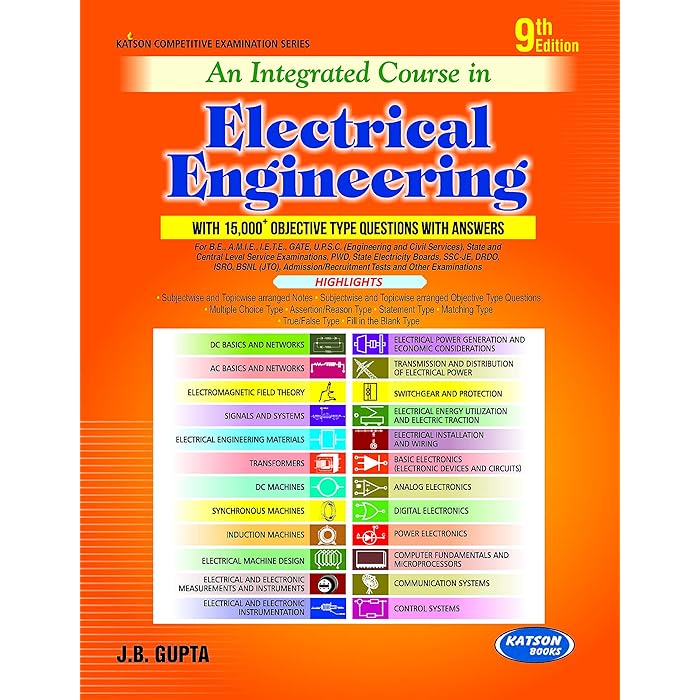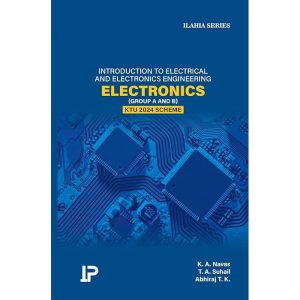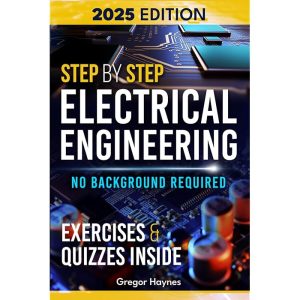Description
“An Integrated Course in Electrical Engineering” typically refers to a comprehensive educational program that combines various aspects of electrical engineering into a single, cohesive curriculum. It integrates fundamental principles of physics, mathematics, electronics, electrical circuits, control systems, and power engineering into a unified learning experience. Such a course is usually designed for students who are pursuing an undergraduate or even a dual degree in electrical engineering.
### Key Features of an Integrated Course in Electrical Engineering:
1. **Comprehensive Curriculum**:
The program typically includes a broad range of subjects such as:
– **Mathematics** (Calculus, Linear Algebra, Probability)
– **Physics** (Electromagnetism, Mechanics)
– **Electrical Circuit Theory**
– **Digital Electronics**
– **Control Systems**
– **Power Systems**
– **Signals and Systems**
– **Microelectronics**
– **Communication Systems**
– **Electromagnetic Fields**
– **Renewable Energy Systems**
– **Instrumentation**
2. **Hands-On Experience**:
Such programs often include laboratory work, where students can apply theoretical knowledge in practical settings, such as circuit design, power systems simulation, and microcontroller programming.
3. **Multi-Disciplinary Approach**:
The course generally incorporates interdisciplinary topics, which might include:
– **Computer Science** (for embedded systems and digital signal processing)
– **Mechanical Engineering** (for power generation and electrical machinery)
– **Environmental Studies** (for sustainable energy solutions)
4. **Dual Degree or Integrated Degrees**:
Some integrated courses lead to a dual degree (e.g., BTech + MTech) or an extended program that combines undergraduate and postgraduate studies in electrical engineering. This allows students to specialize more deeply in areas such as power electronics, renewable energy, or communications.
5. **Advanced Topics and Specialization**:
As students progress, they can choose specialized electives in areas like:
– **Power Electronics and Drives**
– **Smart Grids**
– **VLSI Design**
– **Signal Processing**
– **Artificial Intelligence in Power Systems**
– **Electrical Machine Design**
6. **Industry Linkages and Internships**:
These programs often emphasize industry exposure, providing opportunities for students to participate in internships, workshops, and projects in collaboration with companies in the electrical engineering domain.
7. **Outcome-Based Learning**:
Integrated courses aim to prepare students for real-world challenges, equipping them with the problem-solving skills needed in industry and academia. Students are trained to handle both theoretical and practical aspects of electrical engineering.
### Benefits of an Integrated Course:
– **Holistic Understanding**: Students gain a well-rounded knowledge of all key areas within electrical engineering, making them versatile in their field.
– **Time Efficiency**: By combining undergraduate and postgraduate coursework, the program allows students to complete their education in a shorter time.
– **Job Readiness**: The program is tailored to provide the skills necessary to excel in industries like electronics, energy, automation, telecommunications, and manufacturing.





Reviews
There are no reviews yet.